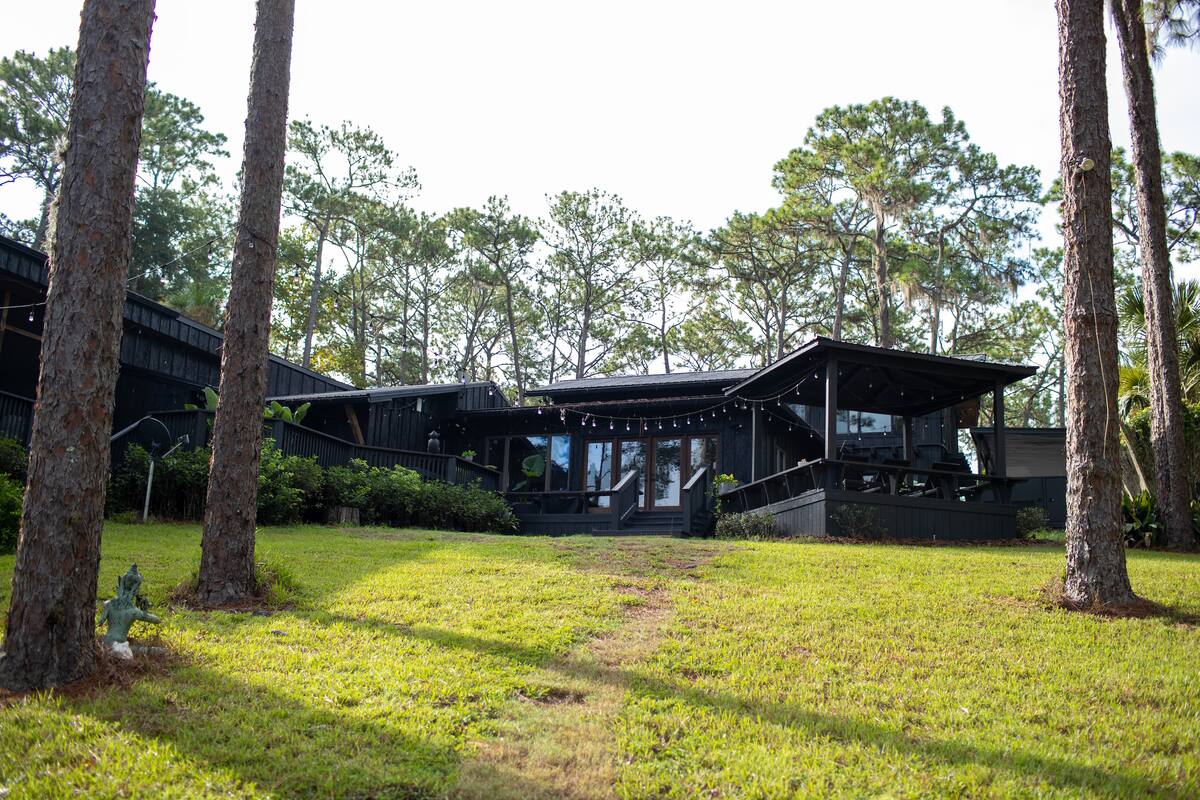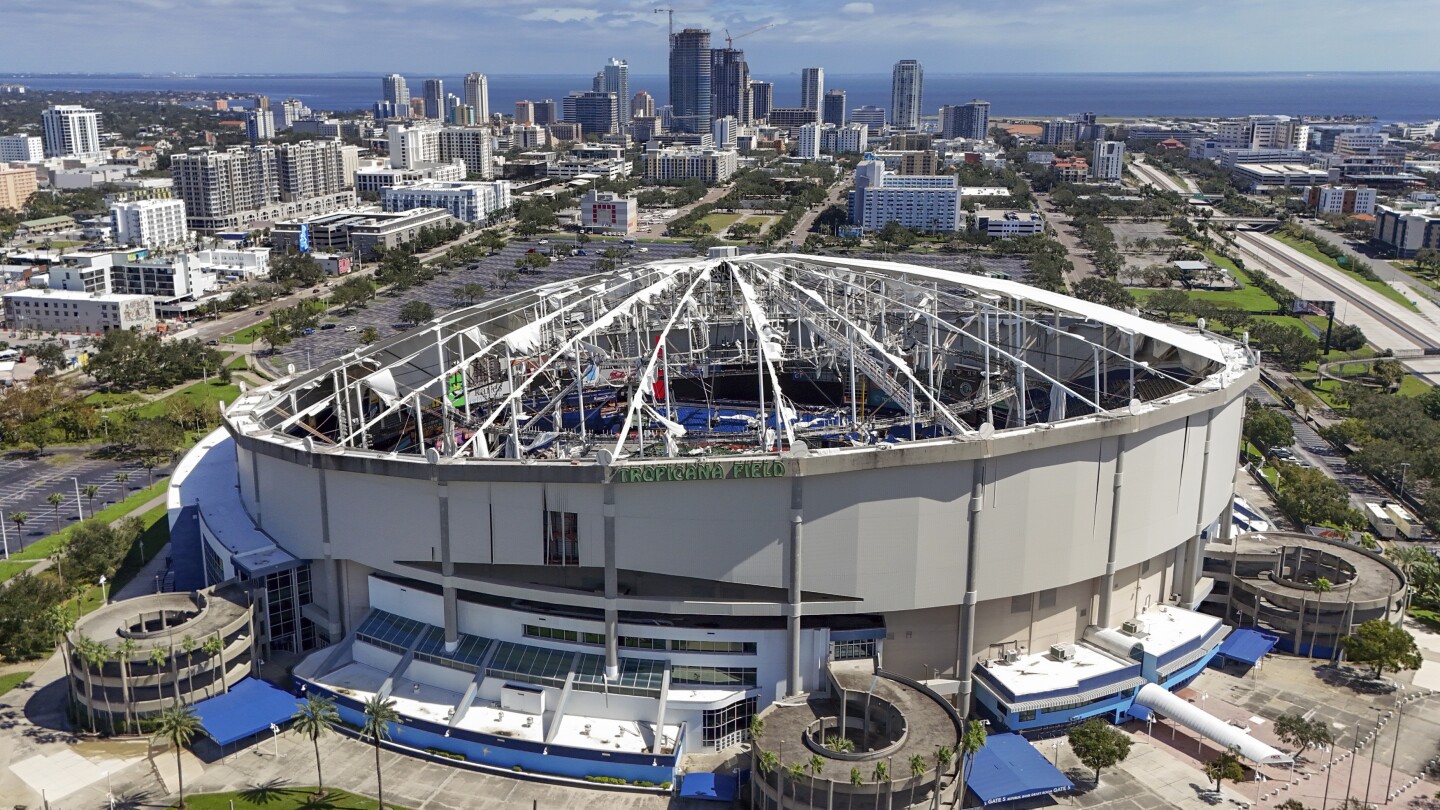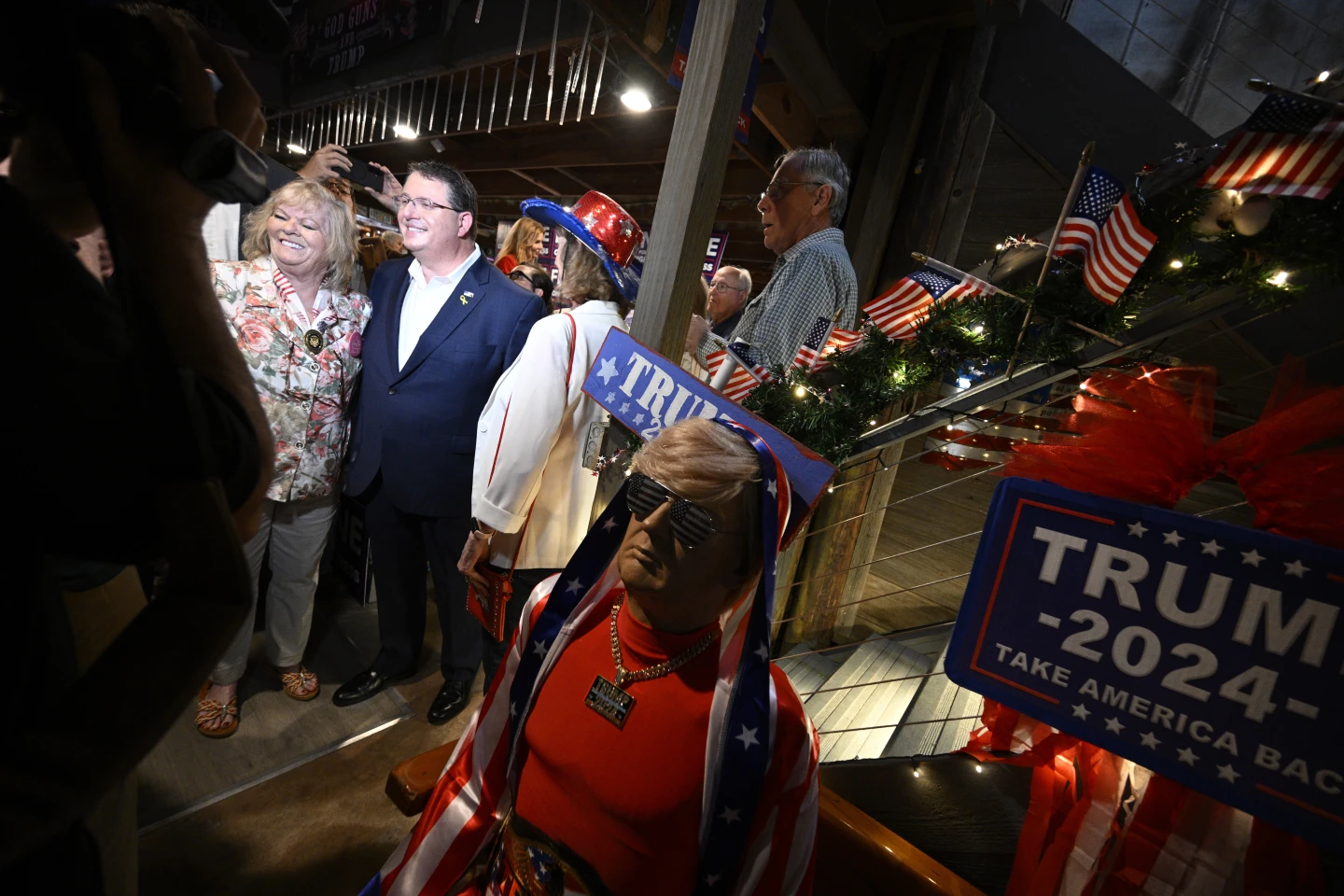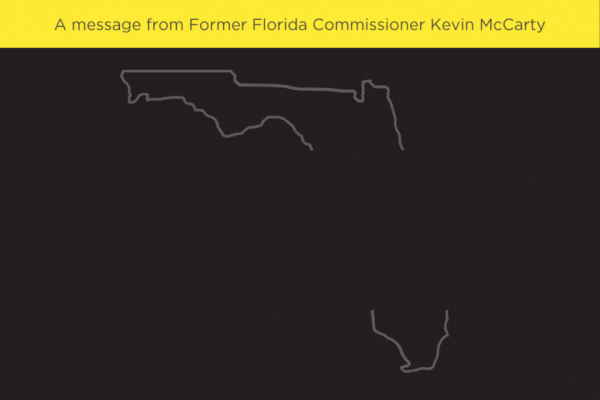Tucked inside a gray cinder block building that doubles as a hair salon, Derrick Scott and Democrats in the westernmost part of the Florida Panhandle spent the last four months trying to pull off the improbable — flipping a conservative military stronghold that President Donald Trump won by nearly 20 percentage points in November.
When the results came in late Tuesday, Democrat Gay Valimont had fallen short of winning a congressional seat that few thought she had a chance to claim. But for the first time in almost two decades, a Democrat vying for federal office had carried Escambia County, home to Pensacola — a remarkable outcome in itself. The last time voters in the county backed a Democrat for the U.S. House was in 1992.
“I was gobsmacked to say the least,” said Scott, chair of the Escambia County Democratic Party.
The leftward shift around Pensacola and shrinking margins in the rest of the 1st Congressional District and another on Florida’s Atlantic Coast may foreshadow big challenges ahead for Republicans as they look to next year’s midterm elections. It could also illuminate a path forward for embattled Democrats in Florida and elsewhere.
Republicans, from Trump on down, are quick to tap the brakes on Democrats’ enthusiasm. They note that Trump-endorsed candidates Jimmy Patronis and Randy Fine both won their respective special election contests by double-digit margins to replace Matt Gaetz, who the president tapped to be attorney general before he withdrew in a shroud of controversy, and Michael Waltz, who became Trump’s national security adviser.
The outcome grows the GOP majority in the U.S. House to 220-213.
Still, in less than five months, margins were cut in half from what their predecessors got last November in some of the most conservative corners of the country. Democrats leaned into frustrations among veterans and people who depend on federal programs and may be bearing the brunt of the Trump administration’s aggressive government overhaul. The results may hold lessons for how their party can make the case against the president and his party going forward.
Choosing a well-known face who had made inroads in Pensacola in the past election helped Democrats gain ground in a stretch of the Emerald Coast that is home to thousands of military veterans and their families. So did a decisive fundraising advantage, boosted by support from a political action committee led by a U.S. Navy veteran.
“It is a warning sign for Republicans in Florida and across the country, and it should send shivers down the spine of any Republican,” said Florida Democratic Party Chair Nikki Fried, who said the results were proof her party had a “pulse” in this state that lost its battleground status over the past few years.
Fried noted there are four military bases in or near Pensacola. And in Florida’s 6th Congressional District, about 60% of residents receive benefits through Veterans Affairs, Social Security, Medicare or Medicaid.
“Those are the issues that are really going to be waking up the sleepy beast,” she said. “It’s not just Democrats, but Americans understand that the Trump and Elon Musk platform and issues are not going to work.”
The Ehr Force PAC is a play on founder Phil Ehr’s last name and military service. Ehr was already known in Pensacola and, in 2020, took 44% of the vote in this county compared to Gaetz’s 55%. He spent months working with local Democratic officials to call, text and door-knock, asking disengaged voters what would motivate them to come back to the polls. The PAC said there was “a significant number of defections” from the GOP.
“It’s a hard, hard road. But now we’ve seen it can be done,” Ehr said.
Heather Lindsay, the Republican mayor of the city of Milton in neighboring Santa Rosa County, voted for Valimont, the Democrat challenging Patronis.
“It’s not about being loyal to one party or the other,” she explained. “It’s about making sure we have a functioning democracy.”
Lindsay has been critical of the cuts impacting the Department of Veteran Affairs and of elected officials who have said little about some of the Trump administration’s new measures.
“I think the Republican Party ought to look closely at what happened in Escambia County and see why they couldn’t take Escambia County for granted,” she said. “To see Escambia County go blue is something to pay attention to.”
Since the GOP took control of the seat in 1994, Republicans had never dropped below 61% of the share of the vote in Florida’s 1st Congressional District. On Tuesday, Patronis received 57% of the vote, compared to his opponent Valimont, who got 42%.
Sally Dutcher, a 77-year-old retired search and rescue worker in Pensacola, was at the watch party for Patronis Tuesday night, where a wave of nervousness rippled through the crowd as supporters watched early returns come in. She said Republicans were “overconfident” and expects Democrats to point to these results to attract more support heading into the 2026 midterms.
“We’ve got to start now. We can’t let up,” Dutcher said. “They’re not going to. They’re already starting on the next election.”
Another area where Democrats gained ground was in Volusia County, made up of residents in Daytona Beach, Ormond Beach and other rural areas further inland. In that county, Fine won by slightly less than 2 percentage points against his Democratic opponent, Josh Weil, after Trump won by 21 percentage points in November.
William Bittorf, of Daytona Beach, said he felt relief when Fine won the race because he feels the Republican president needs more support in Congress to fulfill his agenda.
“I was worried because the Democrats had raised so much money,” Bittorf said.
In the same city, Susan Spencer, a 65-year-old resident, wanted to support a Democrat precisely to stop some of Trump’s actions.
Spencer, an independent voter turned off by the Republican Party after Trump was elected in 2016, stood in line to cast her vote, saying it was a “pivotal time in our government today.”
Spencer suspected most in the line ahead of her would vote for the Republican candidate.
“I just wonder if they also watch the news,” Spencer said.
___
Republished with permission of The Associated Press.
Post Views: 0

 Entertainment8 years ago
Entertainment8 years ago
 Politics8 years ago
Politics8 years ago
 Entertainment8 years ago
Entertainment8 years ago
 Entertainment8 years ago
Entertainment8 years ago
 Tech8 years ago
Tech8 years ago
 Tech8 years ago
Tech8 years ago
 Tech8 years ago
Tech8 years ago
 Politics8 years ago
Politics8 years ago



















